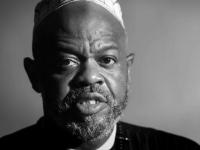BROOKE GLADSTONE: Whether they are publicity stunts or demonstrations of America’s pluralistic freedom to mouth off, these recent Islam-related controversies seem to be amplifying anti-Muslim harassment. According to the Council on American-Islamic Relations, or CAIR, at the beginning of this year there was about one incident per month of vandalism or arson perpetrated against mosques in the U.S. Now they say they're seeing roughly 12 incidents a month. So, in the heated context of the controversy over the so-called Ground Zero Mosque, the threat of Floridian Koran-burning and the anniversary of September 11th, CAIR has decided to step up its PR efforts by producing public service announcements showing American Muslims reflecting on how 9/11 affected them.
[CLIP]:
[MUSIC UP AND UNDER]
RUDY: My name is Rudy. I'm a clinical pharmacist, a first responder on 9/11 and a Muslim.
[END CLIP]
BROOKE GLADSTONE: Corey Saylor is the legislative director of CAIR.
COREY SAYLOR: We felt it was really important to do something that would humanize Muslims to our fellow Americans and then also remind everybody that on 9/11 Al-Qaeda attacked the United States, not Islam. And while Al-Qaeda was murdering Americans, they also murdered 32 Muslims, and among those responding to the attacks were a number of Muslims. So we wanted to feature those stories.
BROOKE GLADSTONE: Why do you think the media feature extremists?
COREY SAYLOR: Well, I think that’s unfortunately what’s going to get most people to watch or listen to the programming. I mean, let's face it, when I'm sitting around with a number of Christians and Jews talking about interfaith and how we can do good things together, that’s not going to gather the same amount of attention as some guy waving a sword and screaming horrible things about America.
BROOKE GLADSTONE: Exactly. I hate to say, what the moderate voices need to do is condemn constantly the extremist voices. Condemnation is not generally a moderate position, but that’s the conundrum you face.
COREY SAYLOR: But that is the interesting thing. See, I think we've condemned so much we've definitely proven who we are not. And the idea behind these PSAs is to showing who we really are. And, you know, in one of those PSAs you do see a man who was responding to 9/11 and learned that one of his friends was killed in 9/11.
[CLIP]:
HISHAM TAWFIQ: When my friend came up to me and told me that Shawn Powell was on the list -
[MUSIC UP AND UNDER] - I took out my phone and I called him. That’s really when it hit me, and I was like, okay, this is real. I'm a New York City firefighter, and I responded to 9/11, and I am a Muslim.
[END CLIP]
COREY SAYLOR: And he has a very human response to it, and it’s just important for people to remember.
BROOKE GLADSTONE: The first two PSAs have the first responders in them. The third one deals with the right to freedom of religion.
[CLIP/MUSIC UP AND UNDER]:
WOMAN: The ability to practice our religion -
MAN: If we don't have our rights -
WOMAN: - is at the heart of American freedom.
MAN: - you don't have your rights.
MAN: Salaam.
WOMAN: Peace.
[END CLIP]
BROOKE GLADSTONE: Do you really think that this message can persuade anyone that we have all this in common when there’s just a chasm growing between Islam and many people in the U.S.?
COREY SAYLOR: Absolutely, and we have proof of that in the history of the United States. I mean, you go back to before the Civil War, it was Irish and Catholics that everyone was suspicious of. World War II, Japanese-Americans were put in internment camps, and they were eventually able to show everyone that they are Americans just like everyone else. They care about the same values. It just happens to be our turn. And the Muslim community is, I think, quite capable of proving we are just like everyone else and we have the same American values as everyone else.
BROOKE GLADSTONE: I'm just wondering whether this is the best use of your money. Far be it from me to advise you, but -
COREY SAYLOR: [LAUGHS]
BROOKE GLADSTONE: - pop culture tends to lead to increasing tolerance. Sympathetic sitcom depictions of minorities and gays tend to serve as a kind of wedge, a kind of ersatz familiarity with the unknown other. Instead of making PSAs, shouldn't you be buying some Hollywood writers an expensive lunch?
COREY SAYLOR: These PSAs, I believe they're a very good investment in our resources, but that doesn't mean this is the only path that we're pursuing. We do have an office in Hollywood, and they do work with various media outlets. I'll be very honest with you. One reality lately is that we just, we don't have time to slow down and really think things through in the best manner. Those PSAs went from being conceived to being distributed in a week and a half.
BROOKE GLADSTONE: Wow!
COREY SAYLOR: And, you know, just the last couple of months since this whole thing in Lower Manhattan got going, it’s interview after interview after interview, meeting after meeting after meeting, and nobody really has time to look at the broader picture. It’s deal with the daily fires.
BROOKE GLADSTONE: Corey, thank you very much.
COREY SAYLOR: Thank you for your time.
BROOKE GLADSTONE: Corey Saylor is the legislative director of CAIR, the Council on American-Islamic Relations, and we will link to those PSAs.

